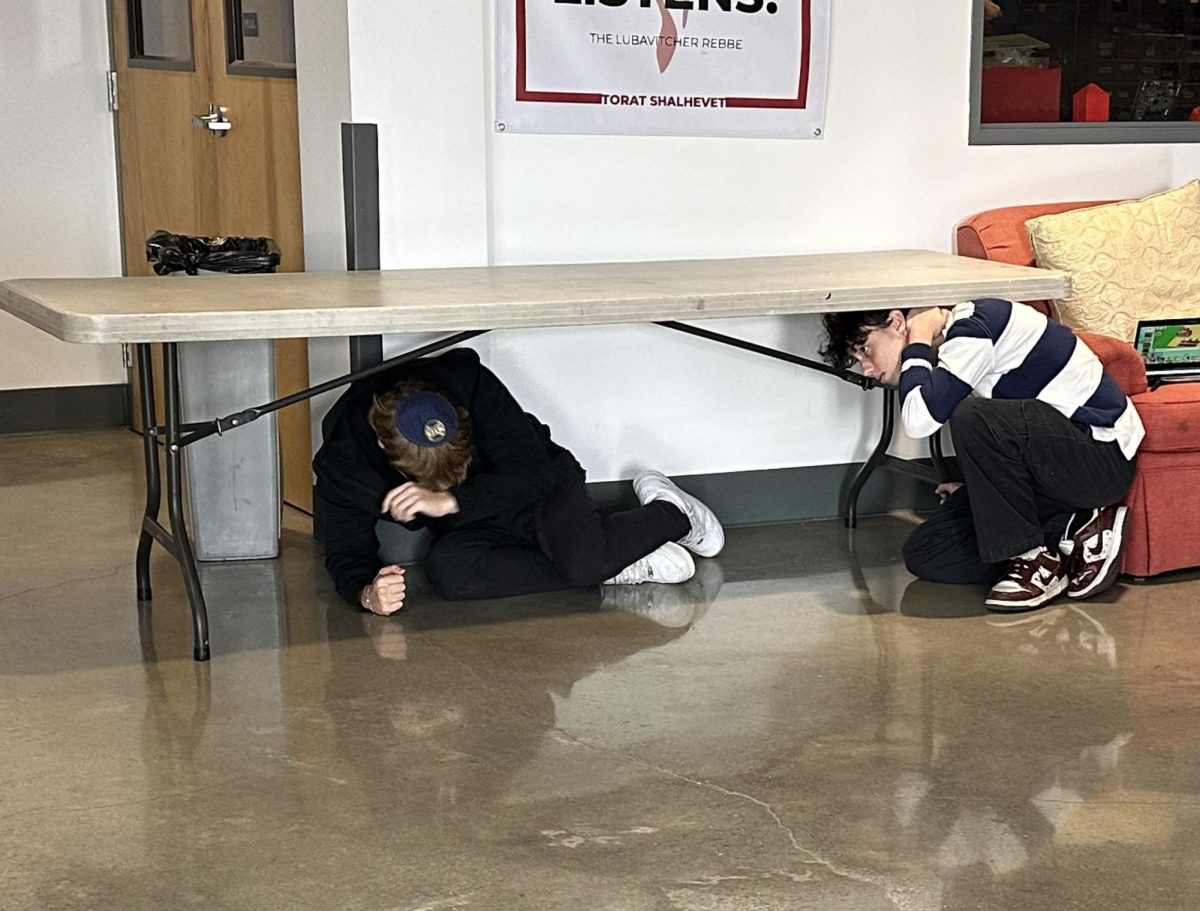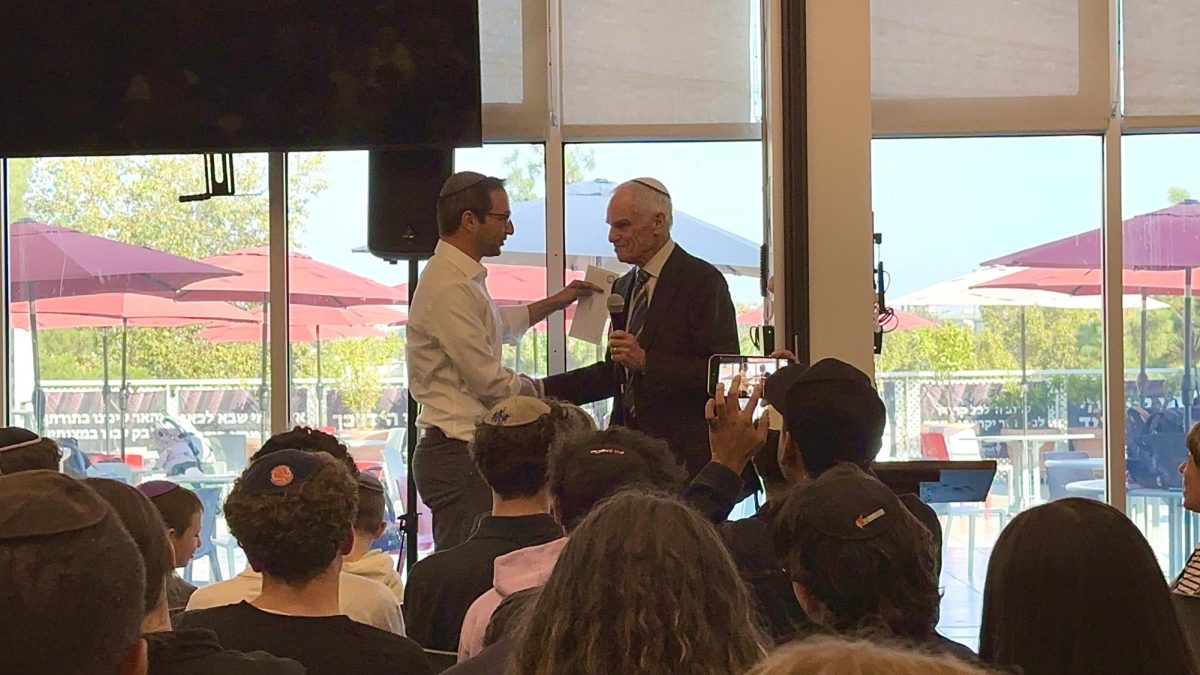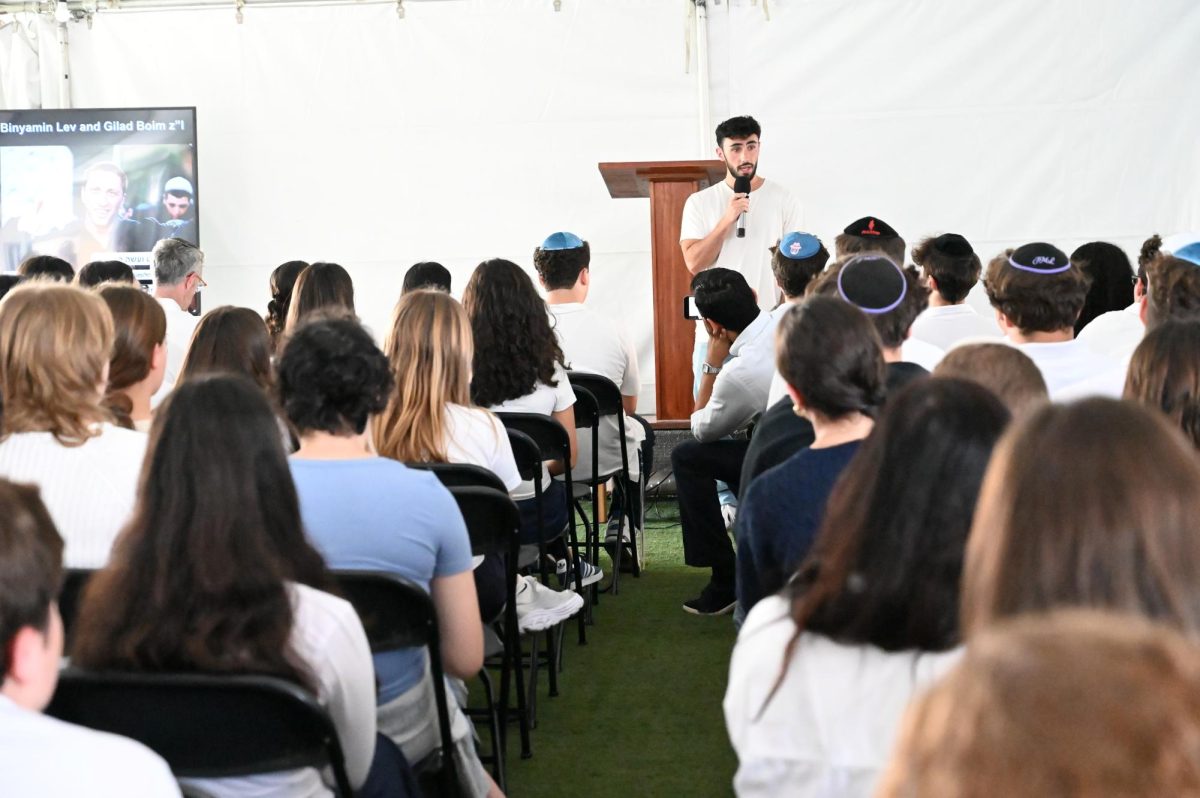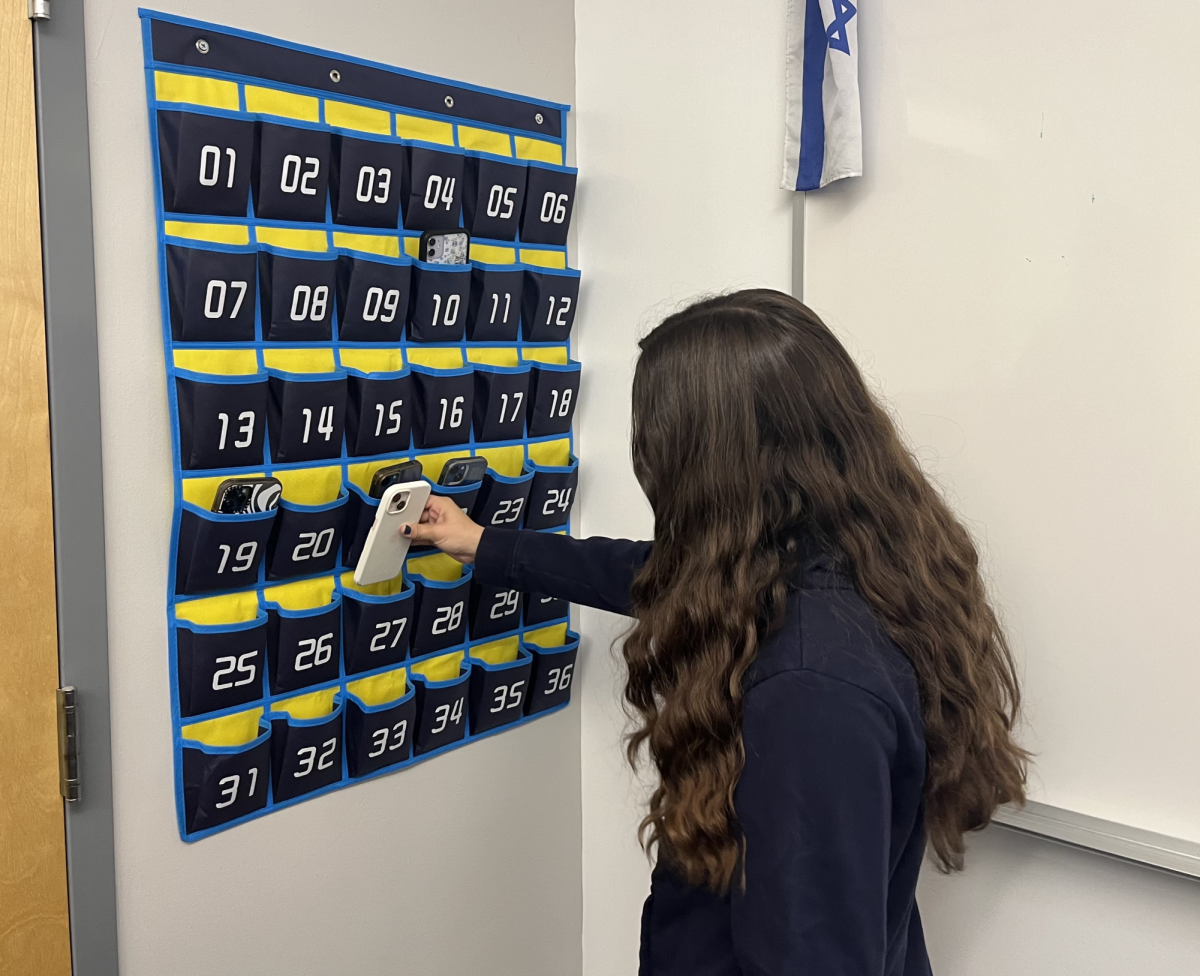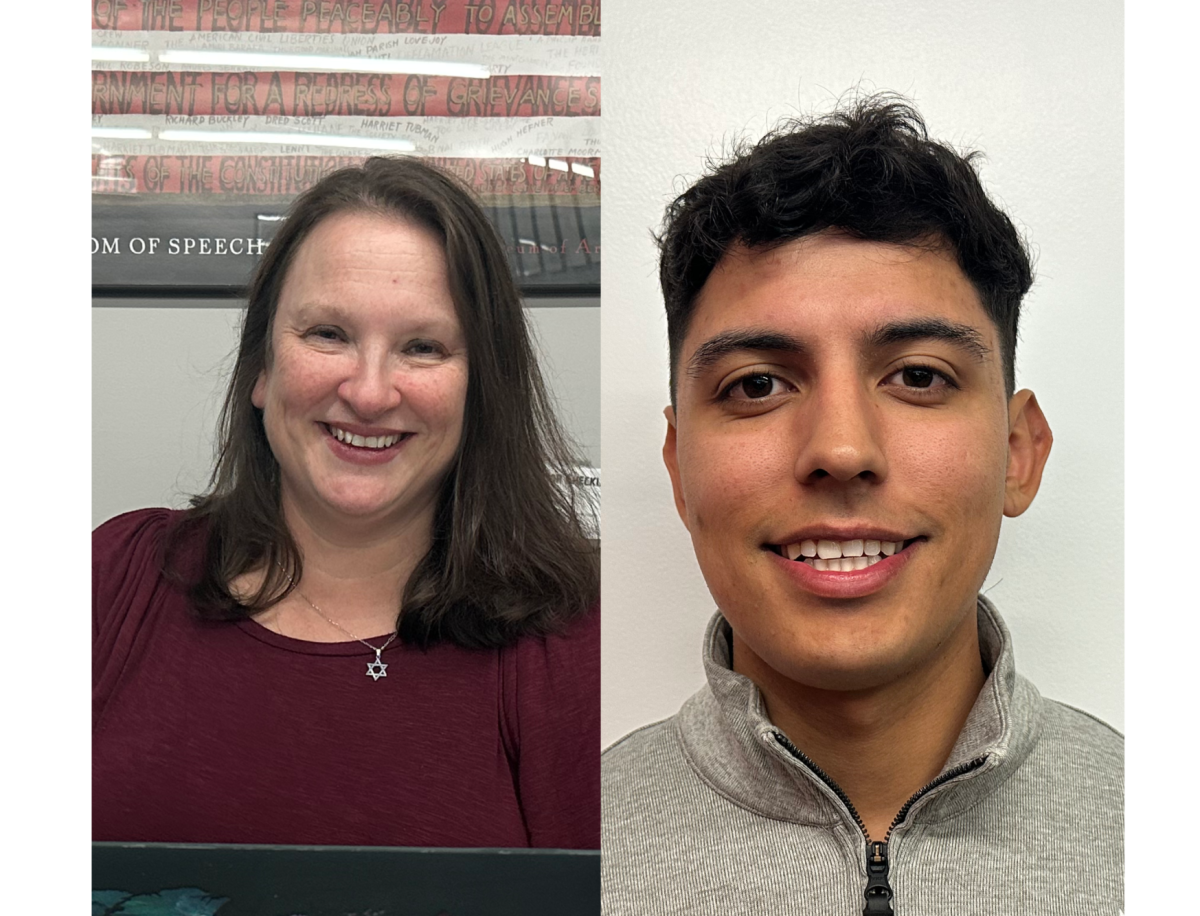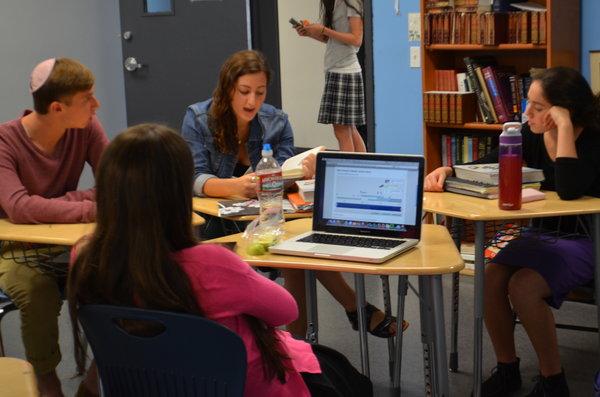
About 30 students, parents and friends gathered in the Beit Midrash May 19 for a screening of Half the Sky, a documentary about problems faced by women in various places around the world.
Arranged by Shalhevet’s new chapter of Girls Learn International, a women’s rights advocacy group, the screening raised $534 for education and other activities.
“I’m really proud of our club this year,” said the group’s founder, junior Tamar Willis, “and I hope we continue to expand next year and really bring awareness of these issues to the shalhevet community.”
In the film, which is based on the popular book by New York Times columnist Nicholas Kristof and his wife, the journalist Sheryl WuDunn, the duo travels through Asia and Africa documenting how women’s rights are abused.Problems highlighted include forced prostitution, forced marriage, women’s health and reproductive rights. It also addresses cultural ideas about femininity.
The pair brought famous American actresses with them on the trip, partly to witness the hardships that girls go through and partly in hope of bringing the project to a wider audience.
“We saw what these families have to go through every day,” said sophomore Shoshi Reich. “It puts meaning behind the things we talk about in GLI.”
“It made me angry that stuff like that is still going on in the world in this day and age,” said parent Renne Bainvoll. “It made me feel helpless, because I can’t see an end to it. Helping one person is not going to eradicate the problem.”
The Sunday evening event opened with speeches by Tamar, freshman Boaz Willis and sophomore Shana Chriki, who introduced the film and described the goals of GLI. After the screening, sophomore Nicole Feder led a question-and-answer with three GLI representatives.
“I was disappointed in the turnout,” said Tamar. “I wish more students would have come and I thought more would. We definitely could have done more thorough publicizing of the event, but I wish more people could have been exposed to Half the Sky.”
Tamar, who started the chapter, believes that if girls around the world have more education, it will help get rid of illiteracy, sex trafficking, and even rape:
“Number one, it keeps them off the street, so they’re less sucsptible to being trafficked or raped,” Tamar says. “It also empowers them and tells them that they’re in charge of their own bodies and lives. Lastly, women who are educated tend to have more higher paying jobs and can better support their families.”
Much of the publicity for the event came from a Town Hall March 21 on the subject of women’s rights in the international community. Tamar contacted GLI, and representatives from the organization agreed to speak to the school.
In the Town Hall, students saw video clips of young girls unable to attend school either because they aren’t allowed or their families can’t afford it.
“It was informative and eye-opening to have actual names and pictures and stories,” said junior Yosef Nemanpour. “It hit close to home.”
Meeting every Thursday during lunch in room 44, GLI has a consistent attendance of approximately 10 people, both girls and boys. Tamar brings in video clips and articles on feminism and women’s rights. GLI hopes to raise awareness of the gender gap and lack of education, and eventually to raise at least $1,000 for partner schools in other countries.
“It’s great to learn about these girls and know that you can do something about it,” said freshman Will Bernstein. “You don’t get that usual feeling of ‘it doesn’t affect me’ or ‘it’s too far to do anything about it.’”
Group members hope the screening and Town Hall discussion will encourage more students to learn about the rising problem of unequal rights, and perhaps to join the group, which held its first meetings this year.
With more students involved in GLI, the club hopes to become more effective in its goals of spreading awareness of the gender gap in education, and raising money for impoverished schools.


